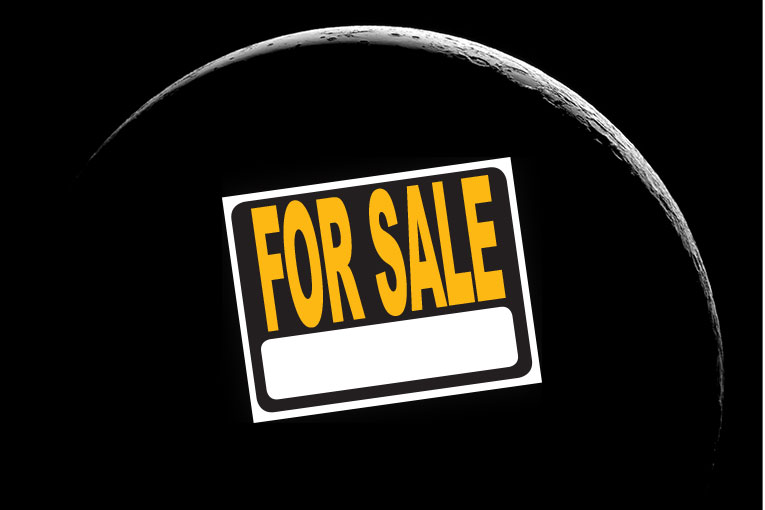
In the previous issue of Mètode I wrote about the Mars One project, which intends to send 24 colonists to Mars. The conclusion was that it looked like a spectacular scam. But given the fact that, in case it turns out to be so, this would not be the only space fraud in circulation, I would like, if I may, to get deeper into it and talk about other frauds.
Most space frauds could be included in the common field of «selling things that are not yours». The most common one is possibly naming a star (after paying, of course): you can write «name a star» on your search engine and you will find twenty different websites devoted to this profitable business. It is, after all, quite a romantic idea to baptise a star with the name of a loved one, and there are lots of stars, most without a name other than a catalogue number. It is then, at least a priori, a nice idea, and it does no harm…
But they are not naming any star, actually. What these companies do first is obtain a big database of celestial coordinates (an Excel spreadsheet, for instance), and then once you pay them they fill a cell in the Excel file with the name you chose. And they issue a beautiful certificate claiming they have filled the cell, together with a celestial chart and information on the star (which is not even correct, sometimes).
«The only institution with the authority to name new celestial bodies is the International Astronomical Union (IAU), which has very clear rules for that»
Will any astronomer, under any circumstance, use that name to refer to the star? Never. Because the only institution with the authority to name new celestial bodies is the International Astronomical Union (IAU), which has very clear rules for that (you can check them in www.iau.org/public/naming/): stars, galaxies, nebulas, etc. will receive catalogue names (and celestial coordinates, which is actually the best tool to identify them) because there are too many of them. The IAU names craters and geographical features in the Solar System, honouring historical characters or inspired geographical features of the Earth. And for minor bodies discovered in the Solar System (comets, asteroids, dwarf planets, etc.) the discoverer suggests a name, which is accepted provided it is not offensive or already in use.
Even non-profit organisations such as Uwingu, devoted to science communication, are riding the wave and dodging the IAU. Uwingu recently organised a contest to name the closest known extrasolar planet to Earth, with the slogan «Alpha Centauri Bb is boring! We can do better!» (by the way, I think the official name of the exoplanet, Alpha Centauri Bb, is beautiful). One had to pay five dollars to drop a name in the hat, and one dollar to vote. It was like a kick in the teeth for the IAU, who issued a press release disavowing the contest and, obviously, rejecting to accept the winner; as a matter of fact, it was «Albertus Alauda» (what a name, you may rightly think). But that did not discourage Uwingo: they have organised a new contest to name… every other exoplanet!
There is an even worse example; those who do not name, but parcel out other worlds and sell the plots, head-on infringing international laws on the matter, mainly the 1966 Outer Space Treaty, which states that no nation can claim sovereignty over celestial bodies, and the 1979 Moon Treaty, which established that our satellite, as well as any other celestial body in the Solar System are common heritage of humanity (Art. 11). These are the main treaties, but there is a lot more UN legislation.
The practice was started by a North American (of course), Dennis Hope, travelling ventriloquist who was tired of driving one good night, looked up at the Moon and had a «revelation». After reading the Outer Space Treaty, he noticed it talked about nations, but said nothing about an individual appropriating a celestial body (although it is explicitly prohibited by the Moon Treaty). So he went to a public notary, registered the Moon and every planet in the Solar System as his property, and started selling Moon plots like hotcakes – twenty dollars an acre. Of course, there are always gullible people, like Tom Cruise, John Travolta, Nicole Kidman or the multimillionaire Abramovich, owner of Manchester United football team, who recently bought a lunar plot for his girlfriend, as compensation because he had to delay the wedding.
Today Dennis Hope’s company, Lunar Embassy, has made a profit of almost ten million dollars, and is starting to parcel up Mars and Mercury. Other similar companies have appeared, playing the same game, like CrazyShop or MoonEstates. We even have our Spanish fraudster, Ángeles Durán, who managed to register another strange property: the Sun! She is starting to sell solar plots, for just one euro each (cheap, but with the size of the Sun, it can amount to a lot of money). Given the fact that the surface of the Sun is a moving fluid, we guess hammering the stakes for parcelling and getting them to stay in place (and not burn!), might turn out to be a problem. But on the other hand, who is going up there to check if the boundaries are correctly set?
Of course, this is all just rubbish. In the moment of truth, when we start colonising the Solar System (if we ever get to), the colonists of those worlds will be the ones setting their stakes and naming the landscape. The inhabitants of the Moon will say «this is my land», no matter what an affidavit or a UN document says. Until then, any legislation on the subject or any personal ambition to own celestial bodies will be just an anecdote in history books.
By the way, I will go to a notary now. I just realised no one lay claim on the Galaxy yet. There is a lot to parcel out there.





